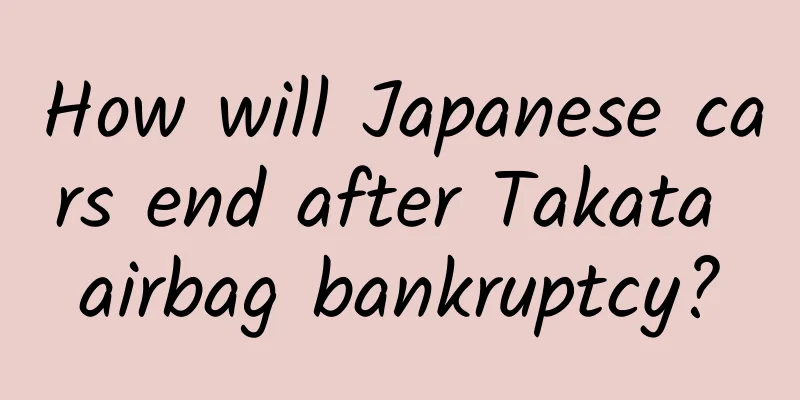There is no true love in capital marriages. Three stories about Didi

|
Due to conflicts of interest, I cannot name some of the interviewees or chat partners who appear in this article. They are in the capital department and told three stories about Didi's marriage with capital. When Didi Chuxing acquired Uber China, I became even more convinced of what the capitalist tycoon Gordon Gekko said in the 1987 American movie "Wall Street" - what is worth doing is worth doing for money. 1. Fast is a mirror The merger between Didi and Kuaidi is a mirror that allows us to see not only the result of this capital marriage, but also the future of Uber China. I still remember that on Valentine's Day last year (February 14, 2015), Didi and Kuaidi announced a strategic merger and outlined a beautiful future. In this blueprint, Didi and Kuaidi each performed their duties and worked together to run towards the stars and the sea. Even the investors standing behind the scenes applauded with gratitude. All the fictitious scenes were only to express one word - harmony. Before a storm comes, the sea always appears unusually calm. The friendship between Didi and Kuaidi soon capsized. When recalling the details, people familiar with the merger said that it would be more accurate to say that Didi acquired Kuaidi rather than Didi merging with Kuaidi. In the details of the investment transaction, the core circles including investors and management teams of both parties reached a consensus that Didi would lead the future business integration, while the founding team of Kuaidi, led by Lv Chuanwei, would gradually withdraw from management. These are all in the transaction details. Therefore, when a capital transaction is concluded, many transaction details have been determined, and the parties involved only make selective disclosures. Under the rules of the game, even if the interests of some core management teams or investors are not satisfied, they can only choose to accept it after it is written in black and white. Because there are also binding clauses that restrict them from speaking their minds to the media when they are unhappy. In terms of equity distribution, Didi and Kuaidi exchanged shares in a 4:6 ratio, that is, 6 shares of Kuaidi can be exchanged for 4 shares of Didi. In other words, in this transaction, Didi's valuation and pricing are higher than Kuaidi's. As the founder of Kuaidi, Lü Chuanwei holds very few shares in the merged Didi, and most of them are cashed out. My personal understanding of this is that this is inherent in Lü Chuanwei's personal need for cash control. More importantly, in the list of Didi shareholders with dispersed equity, Didi and VC and PE parties need to vacate more shares to prepare for the next round of financing. After this round of capital merger, Tencent took the lead. Although its equity was diluted, it is still the single largest shareholder of Didi. Alibaba is at a disadvantage at this time, but the confrontation is not over yet. 2. Shenzhou Special Car as a backup At the beginning of this year, Alibaba extended an olive branch to Shenzhou Private Car, and the person who led this investment was Alibaba Group Vice Chairman Joseph Tsai. Joseph Tsai personally led several major strategic business investments made by Alibaba. Whether it is Meituan, Ele.me, Didi, or Shenzhou Private Car, these businesses have a significant impact on Alibaba's e-commerce or Ant Alipay. The reason behind this investment was that Didi wanted to abandon Amap and use Tencent Map. This completely angered Alibaba. As a company that claims to provide commercial data, Amap absorbs travel data and local life service data that can be extended around travel. Alibaba is certainly unwilling to give up easily, let alone let its competitor Tencent take over. However, the consciousness of Tencent, the major shareholder, is not easily violated, and Didi is in a dilemma. During this period, Didi CEO Cheng Wei and President Jean Liu tried to "communicate" with Alibaba Chairman Jack Ma, but to no avail. People familiar with the matter revealed that Jack Ma had been avoiding them, and the two young people didn't know where to start, so they turned to seek a meeting with Alibaba CEO Zhang Yong, but still failed. At this time, Alibaba had already flirted with another company in the travel market, UCAR, and soon reached a deal. In the public shareholding statement, ALIBABA.COM CHINA LIMITED and Alibaba (China) Network Technology Co., Ltd. each held 33,597,312 shares of Shenzhou Youche Co., Ltd. (the parent company of Shenzhou Zhuanche) on March 14, 2016, becoming its strategic investors. Around March 15, when Alibaba and Shenzhou Zhuanche were preparing to make an announcement, a new turn of events occurred in the cooperation between Didi and Alibaba. The turning point was that both parties compromised and gave in, and Didi's original shareholders agreed. This was not easy. In mid-May, when Alibaba submitted its 2016 annual report, we saw that Alibaba and Ant Financial each invested 200 million US dollars in Didi Chuxing. The equity ratio of both parties in Didi Chuxing increased, and the shares of Tencent and other old shareholders were diluted in equal proportion. The transaction conditions were that Didi continued to use AutoNavi Maps, and Alibaba withdrew its investment in its direct competitor, Shenzhou Zhuanche. In this way, the cooperative resources that Alibaba promised to Shenzhou Zhuanche will also disappear. The two PEs that took over Shenzhou Private Car were Yunfeng Fund and Yunling Investment. These two PEs could not bring Alibaba's business support and resources to Shenzhou Private Car. In the entire capital situation, Shenzhou Private Car is just a spare tire, nothing more. Therefore, when commercial interests are consistent, capital and enterprises talk about dreams and glory, but once they go against each other, they will cut off the hands. 3. Uber is a pain point and a blind spot Didi finally took over Uber's business in China, Uber China, clearing the way for further "monopolization" of the market. In Didi's external PR, we saw that Didi used the acquisition of Uber China and cross-holding with Uber Global. If the merger between Didi and Kuaidi was still a secret, with many things not being easy to bring to the table, then the capital marriage with Uber was completely naked and direct - no need to give Uber China any face. Didi used this PR manuscript to announce to the world: Didi is completely acquiring all the assets of Uber China. This means that the future fate of Uber China will be controlled by Didi, and it can merge similar businesses and re-select personnel. A well-known investor told me that investment and M&A are often done to eliminate the other party and clear the obstacles in the market, which is also in the common interests of investors. The same applies to Didi and Uber. For Didi, the biggest obstacle before the IPO is to clear the main competitors in the market and obtain a better premium for capital valuation, which is in line with the vision of the founding team and maximizes the interests of investors. According to the data provided by the "2016 Q1 Private Car Market Research Report" released by CNIT, although Didi occupies 80% of the online car-hailing market share, Uber's market share of only 15% has always been not to be underestimated, and the latter has shown no signs of letting go before this with the support of Uber Global. After this merger, the two parties have basically formed an oligopoly. In the capital market, Didi has new ideas about its market share and future growth potential. After this capital alliance, Didi investors can be said to have taken a reassurance pill and are waiting for the listing to share the feast brought by capital. For Uber, the Chinese market is no longer a swamp that drags it into the mud, but a brand new potential market. At least, for Uber, the IPO is also an important step for it to continue to expand its global market. In the past, Uber faced many problems in China, such as policies, market competitors, and on-site management. Now these problems have been solved. Not only does Uber not need to invest hundreds of millions of dollars, but it also has Didi, the most effective local helper. Data shows that after the transaction is completed, Uber holds 5.89% of Didi's equity, equivalent to 17.7% of the economic rights. This has a very important voice in the list of Didi shareholders with dispersed equity. Therefore, from a strategic perspective, Uber made a brilliant move. Uber cleared major obstacles in the Chinese market, while freeing up energy to deploy troops in the global market, telling a big story for the IPO. On the contrary, although Didi has gained an absolute market share in the Chinese market, it also faces the constraints of global layout. In Didi's PR manuscript, we can see Didi's emphasis on internationalization - this is the basis for Didi to tell a big story, and it is also the only way to achieve large-scale development. However, for investors, what they need is the upcoming IPO. As for how Didi will go international in the future, who cares! As a winner of Toutiao's Qingyun Plan and Baijiahao's Bai+ Plan, the 2019 Baidu Digital Author of the Year, the Baijiahao's Most Popular Author in the Technology Field, the 2019 Sogou Technology and Culture Author, and the 2021 Baijiahao Quarterly Influential Creator, he has won many awards, including the 2013 Sohu Best Industry Media Person, the 2015 China New Media Entrepreneurship Competition Beijing Third Place, the 2015 Guangmang Experience Award, the 2015 China New Media Entrepreneurship Competition Finals Third Place, and the 2018 Baidu Dynamic Annual Powerful Celebrity. |
<<: Neither a handheld nor a home console? The truth about Nintendo NX from clues
>>: Looking into the future: How far are we from smart home?
Recommend
Why is this monkey's butt blue and mine isn't?
One of my daily tasks is to restore ancient anima...
The public version of ARM architecture is the king, and independent CPUs are useless?
For mobile phone processors, you don't need to...
Can it make "Halo" shake? "DESTINY" PS4 version game experience
Since Bungie was acquired by Microsoft in 2000, &...
Worth over one trillion! No. 1 in Asia! They discovered 4 world-class manganese mines in Guizhou...
On September 13, 2024, Zhou Qi, director of the B...
This organism's genome is a 'mountain of DNA garbage', and it's growing
South American lungfish (Image credit: Katherine ...
Beware of scams! Master these practical tips to keep you away from online rumors!
There is a line in the movie "Keep You Safe&...
National Cancer Prevention and Treatment Week丨1/3 of cancers can be prevented! Here’s what you need to know about cancer prevention…
April 15th to 21st of each year is the National C...
The official iPhone system has been updated, and data can finally be migrated!
For iOS, which is perhaps the most user-friendly ...
Intel leads the way in the "big adventure" of autonomous driving. What are the chances of BATH accelerating and surpassing others?
Intel, which has pulled the fuse, is igniting a b...
If you don't wipe your butt properly, you will get hemorrhoids. How to prevent hemorrhoids? If you don't know, read this
Wiping one's ass is a technical job. Regardle...
Tencent QQ: Please cherish your account rights. More than 13,000 QQ accounts have been blocked this year.
On October 31, Tencent QQ Security Center release...
Unlock the creative advertising secrets that make your brand popular and popular!
This article begins with a study of cases with ex...
I’m not kidding you, you can really add legs to a snake!
Calendar Girl Tips There are snakes in the pictur...
Actually, we are all stars.
© CC BY 4.0 Leviathan Press: I forgot where I saw...
In the face of global warming, it is not enough to just reduce emissions, we also have to catch “carbon”!
The world is really on the brink of danger. When ...









